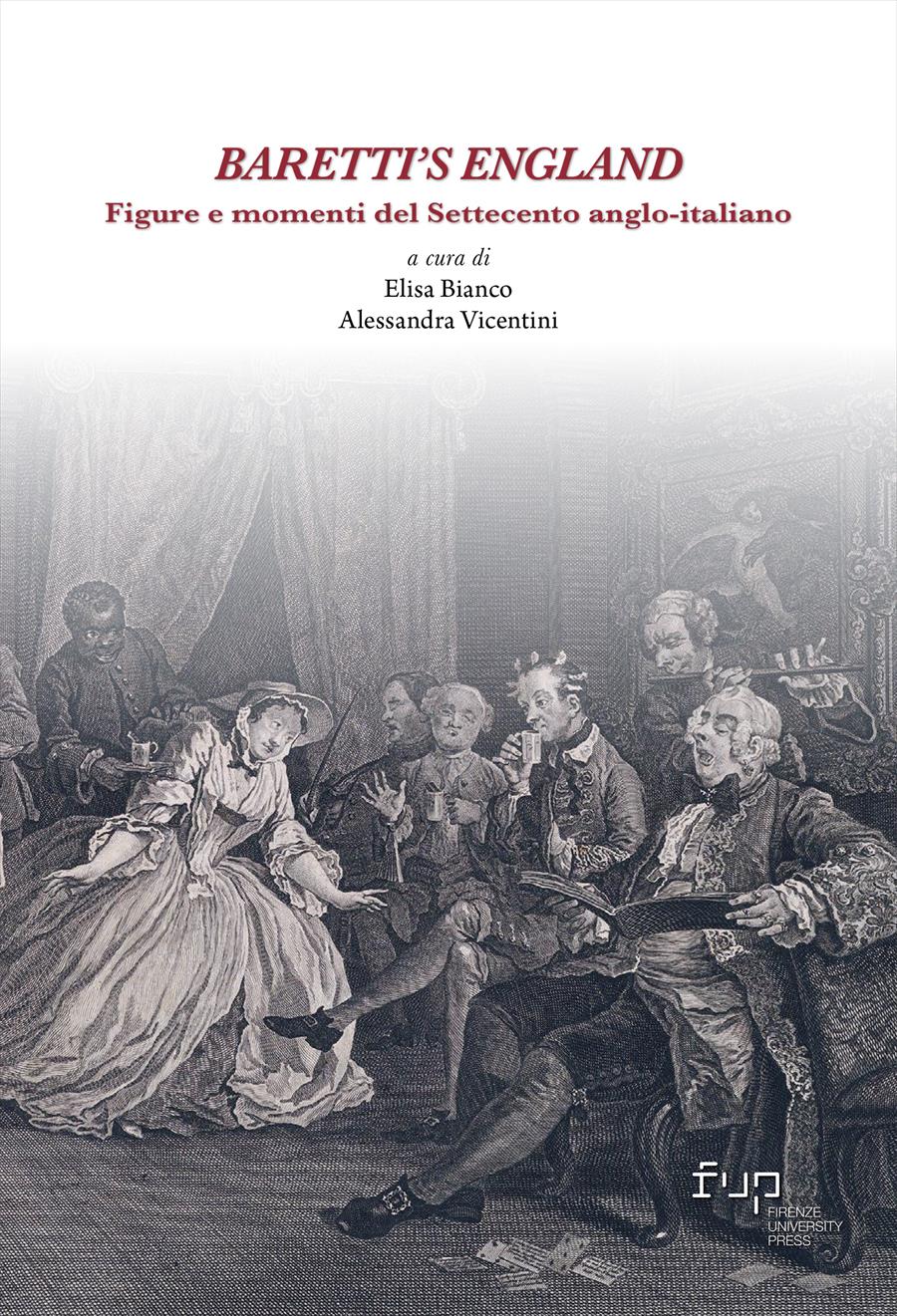- Baretti’s England
- Edited by Elisa Bianco, Alessandra Vicentini
Baretti polemista e traduttore in A Dissertation upon the Italian Poetry
- Omar Khalaf
- © 2024 Author(s) |
- CC BY 4.0
- DOI: 10.36253/979-12-215-0448-4.11
This brief essay attempts to shed light on some hitherto unnoticed aspects of Baretti’s approach to translation. A close analysis of his Dissertation upon the Italian Poetry, in fact, reveals that behind the Italian philosopher’s fierce reaction against Voltaire’s Essay on the Epic Poetry of All the European Nations from Homer down to Milton lies a profound analysis of the language and its evocative function. Baretti’s English translations of Italian masters such as Dante, as poor as they seem, become the most obvious demonstration of the unsurpassed beauty and force of the Italian poetic language, whose sounds are so potent and suggestive to hamper any translation effort. Therefore, without relinquishing his typically polemical vein, Baretti anticipates some of the most contemporary approaches towards translation, revealing, also in this aspect, his outstanding intellectual stature.
- Keywords:
- A Dissertation upon the Italian Poetry,
- England,
- Voltaire,
- poetry,
- language,
University of Padua, Italy - ORCID: 0000-0001-6605-2354
- Antiseri, D., Reale, G. 2008. Storia della Filosofia 6. Illuminismo e Kant, Milano: Bompiani.
- Baretti, G. 1753. A Dissertation upon the Italian Poetry, in Which Are Interspersed Some Remarks on Mr. Voltaire’s Essay on the Epic Poets. London: R. Dodsley, at Tully’s Head in Pall-Mall (ESTC T83931). Disponibile su https://books.google.it/books?id=WRVcAAAAQAAJ&printsec=frontcover&hl=it&source=gbs_ge_summary_r&cad=0#v=onepage&q&f=false (2024-06-20).
- Baretti, G. 1936. Epistolario, a cura di L. Piccioni, vol. I. Bari: Laterza.
- Binni, W. 2016. “Il ‘grave stil nuovo’ del Pindemonte.” In Scritti settecenteschi, a cura di W. Binni, 225. Firenze: Il Ponte.
- Boswell, J. 1986. Life of Johnson. Unabridged, a cura di R. W. Chapman (seconda edizione). Oxford: Oxford University Press.
- Condillac, E.B. 1757. Traité des sensations, t. I. Londres: Saint Paul.
- De Saussure, F. 2021. Corso di linguistica generale, introduzione, traduzione e commento di T. de Mauro. Roma: Laterza.
- Piccioni, L. 1899. Studi e ricerche intorno a Giuseppe Baretti. Con lettere e documenti inediti. Livorno: Faello Giusti.
- Toury, G. 1995. “The Nature and Role of Norms in Translation.” In Descriptive Translation Studies and Beyond, ed. by G. Toury, 53-69. Amsterdam-Philadelphia: John Benjamins.
- White, F. D. 1915. Voltaire’s Essay on Epic Poetry; a Study and an Edition. Albany (NY): Brandow. Disponibile su https://books.google.it/books?id=hzIHAAAAQAAJ&printsec=frontcover&hl=it&source=gbs_ge_summary_r&cad=0#v=onepage&q&f=false (2024-06-20).
Chapter Information
Chapter Title
Baretti polemista e traduttore in A Dissertation upon the Italian Poetry
Authors
Omar Khalaf
Language
Italian
DOI
10.36253/979-12-215-0448-4.11
Peer Reviewed
Publication Year
2024
Copyright Information
© 2024 Author(s)
Content License
Metadata License
Bibliographic Information
Book Title
Baretti’s England
Book Subtitle
Figure e momenti del Settecento anglo-italiano
Editors
Elisa Bianco, Alessandra Vicentini
Peer Reviewed
Number of Pages
200
Publication Year
2024
Copyright Information
© 2024 Author(s)
Content License
Metadata License
Publisher Name
Firenze University Press
DOI
10.36253/979-12-215-0448-4
ISBN Print
979-12-215-0447-7
eISBN (pdf)
979-12-215-0448-4
eISBN (epub)
979-12-215-0449-1
Series Title
Biblioteca di storia
Series ISSN
2464-9007
Series E-ISSN
2704-5986
